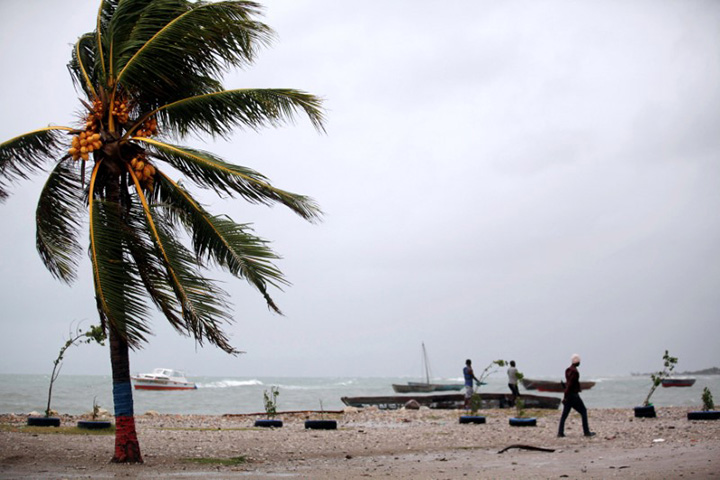Hurricane Matthew is threatening several of the Caribbean’s most popular destinations for island getaways, jeopardizing trip plans for Canadians hoping to take advantage of shoulder season.

The eye of the Category 4 hurricane is expected to pass east of Jamaica and then over or close to the southwestern tip of Haiti late Monday or early Tuesday, the U.S. National Hurricane Center in Miami said.
READ MORE: Haiti braces for dangerous Hurricane Matthew as storm approaches
Matthew is predicted to hit the lightly populated eastern tip of Cuba on Tuesday afternoon. However, areas under a hurricane watch include the Turks and Caicos and central Bahamas.
Although tourism is significantly lower in the Caribbean at this time of year, Hurricane Matthew may have a direct impact on Canadians who have trips booked to affected areas in the coming days.
Here’s what you need to know if you’ve booked a trip to one of the affected regions:
If you purchased trip cancellation insurance and a travel advisory is issued by the Canadian government, your trip will be covered
According to Will McAleer, president of the Travel Health Insurance Association of Canada, any traveller who purchased trip cancellation or trip interruption insurance while booking their vacation will be able to claim the cost of their trip so long as the government of Canada has issued a non-essential travel warning to the reason.
“Assuming that advisory is up when you are supposed to go, that trip would be covered,” McAleer said.
The travel advisory must still be valid on the day you are scheduled to leave.
WATCH: Hurricane Matthew most powerful storm to hit Caribbean in a decade

Non-essential travel advisories have been issued for Jamaica, Turks and Caicos, as well as central and southeastern Bahamas due to Hurricane Matthew.
However, if you are scheduled to leave for a trip in the coming days and you have yet to purchase insurance, it won’t do you any good to buy it now; according to McAleer, you would need to buy your trip cancellation insurance before any weather issues were reported for it to be covered.

Get daily National news
READ MORE: What Canadians need to know about travel health insurance
Global News contacted several trip insurance providers for comment regarding hurricane coverage.
TD Insurance, PC Insurance and Manulife Insurance confirmed trip cancellation insurance will apply if a formal travel advisory has been issued by the government of Canada. Both providers urged customers travelling to the Caribbean to contact their provider immediately to verify their coverage.
Check with your tour operator
Having been through a hurricane while on vacation many years ago herself, travel expert Claire Newell suggests travelers check with their tour operator – such as Air Canada Vacations, or West Jet Vacations – as many of them offer hurricane coverage.
“None of this will come into play until something hits land. Basically, they are watching this minute by minute. When it actually hits land and the damage is seen – whether it hit near the resort, or if it affected the airport – they will make their decision,” Newell said, noting that whether you would get a refund or switch your travel dates is up to the individual provider.
“Whether it’s an ‘act of God’ is up to the tour operator to determine.”
Still planning on travelling? Take these steps to protect yourself
If you still plan on travelling to a region that could be affected by extreme weather, it’s recommended that you register your trip with the government of Canada.
The Registration of Canadians Abroad service allows the government to know who has travelled to areas affected by things like natural disasters, civil unrest, or terrorism. You will be asked to provide personal details – including your passport number – where you will be staying in the country you are visiting and an emergency contact person in Canada.
You can register your trip online here.
WATCH: Waterspout forms near Jamaica as Hurricane Matthew inches closer

It’s also recommended that you carry the phone number and information for Canada’s Emergency Response Centre and carry contact information for Canadian government offices where you plan to visit.
Newell recommends that those travelling with a tour operator carry the contact information for their operator, should the situation where they are staying become serious.
It’s also important to note that some insurance companies may not honour medical claims for injuries suffered in a country for which the government has issues a travel advisory. Check with your provider to verify any terms and limitations in your policy before you travel.










Comments